Allergy Research Group
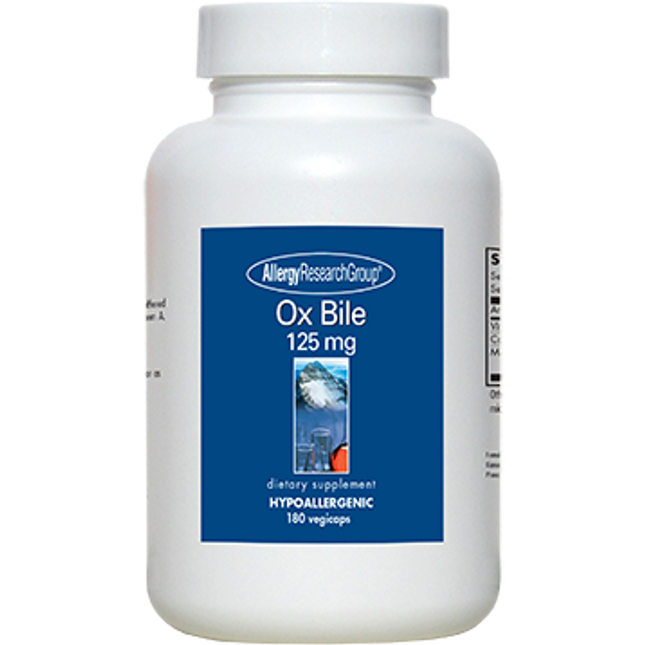
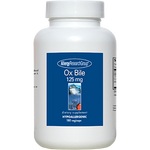
Dietary Supplement Serving Size: 1 Capsule Servings Per Container:180 Amount Per Serving Bile (Bovine) 125mg Other ingredients: Hydroxypropyl methylcellulose, cellulose, L-leucine Suggested Use: As a dietary supplement, 1 capsule three times daily with meals, or as directed by a healthcare practitioner. Hypoallergenic. Keep in a cool, dry place, tightly capped.
$41.19
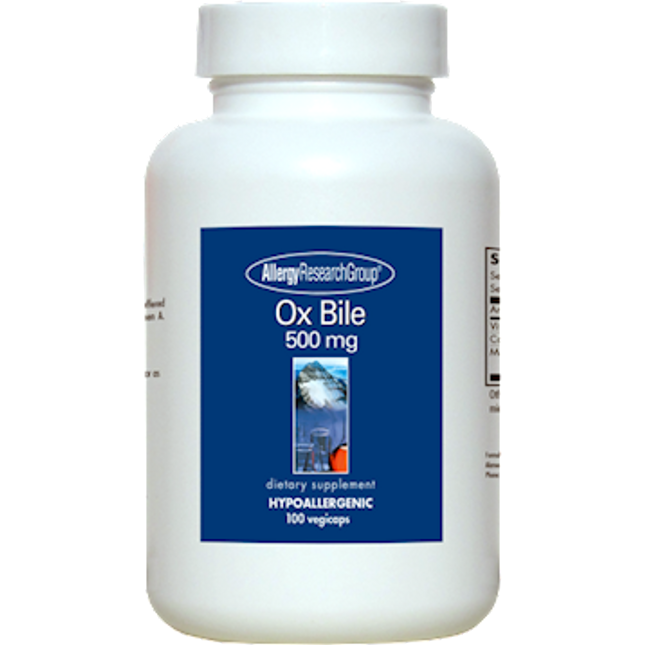
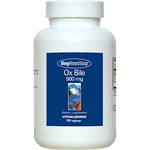
Bile from bovine source, freeze-dried. Suitable to supplement the liver's production of bile for digestion.  Serving Size:1 Capsule Servings Per Container:100 Amount Per Serving Organic lyophilized beef glandular Suggested Use: 1 cap 2 times a day
$43.29
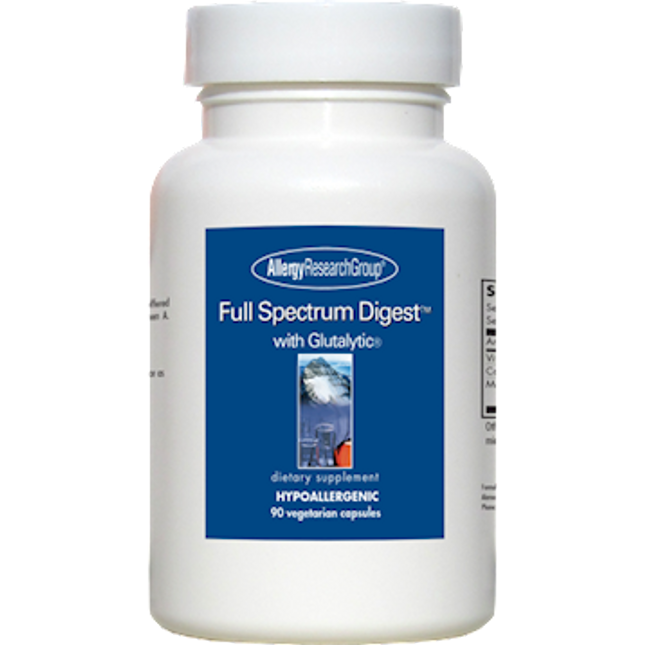
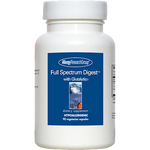
Dietary SupplementFull spectrum vegan enzyme blend, including Glutalytic, lactase, lipase, alpha-galactosidase, and amylase, to assist breakdown of gluten, gliadin, casein, whey, lactose, protein, fats, and carbohydrates.* Serving Size:1 Vegetable Capsule Servings Per Container:90 Amount Per Serving Glutalytic (Endo & Exo-Peptidase Blend) 189 mg  Protease 75000  Aspergillopepsin 500  Protease DDP IV 125  Amylase 15,000 DU 125 mg  Lactase 4500 ALU 60 mg  Lipase 2500 FIP 11 mg  Alpha-Galactosidase 150 GalU 6 mg   Other ingredients: Hydroxypropyl methylcellulose, rice dextrin, medium-chained triglycerides     Suggested Use: As a dietary supplement, 1 capsule one to three times daily with meals, or as directed by a healthcare professional. Not recommended for use with light snacks.HypoallergenicKeep in a cool, dry place, tightly capped. May be refrigerated for long-term storage.ÂÂÂ
$63.79
Allergy Research Group Products
Allergy Research Group vitamins and minerals offer immune support and guard against illness. Their flax seed oil ensures you get the necessary amount of EFA each day. Essential fatty acids, or EFAs, are needed for many biological processes. Their amino acids help bypass the digestive system so they can be quickly absorbed. Allergy Research Group was the first to introduce Nattokinase in the United States. Nattokinase is an enzyme derived from a fermentation of soybeans and Bacillus Natto. This powerful enzyme has been scientifically shown to improve cardiovascular and circulatory problems.
They offer some of the best hypoallergenic products on the market. Each supplement is carefully analyzed to ensure no microbial, residual solvents, heavy metals or aflatoxins are found in the product.
Allergy Research Group avoids ingredients that are known to be common allergens. These ingredients include fish, milk, peanuts, yeast, soy, shellfish, corn and wheat. Additionally, each product is free from artificial colorings and flavorings to help protect against allergic reactions. By using only natural, hypoallergenic ingredients assures users with food allergies and food intolerance will not experience any adverse reactions.
Blog posts
-

in Wellness Collagen: Your Key to Healthy Joints, Skin, and Hair
Collagen is a protein that plays a vital role in maintaining the health and integrity of our joints, skin, and connective tissues. Our collagen production...
-

in Wellness Immunity Boosters For Kids
During winter, a kid with weak immune system is more vulnerable to cold and flu. Supplement your child's diet with the right vitamins and supplements.
-

in Wellness 7 Habits That Affect Heart Health
The heart is one of the most crucial organs in the body that supports life. It is important to take good care of it.
-

in Wellness How To Prevent Breast Cancer
Risk of developing breast cancer can be reduced by eating a healthy diet, moderate exercise and diagnostic testing.












